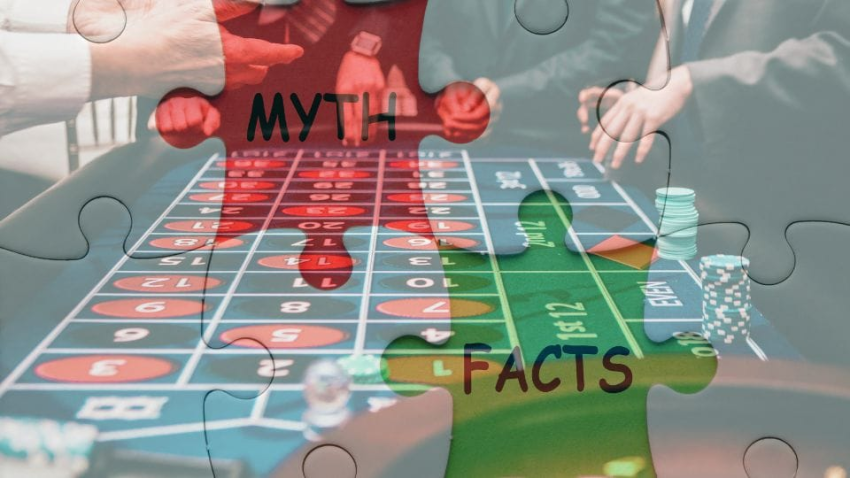Gambling myths abound in both brick-and-mortar casinos and the online gaming world, often clouding the judgment of players and leading them to make poor decisions. These common gambling myths can create misconceptions that contribute to irresponsible gambling practices, whether it’s believing in the gambler’s fallacy or holding onto the idea that certain rituals can change the odds. As we delve into the realm of debunking gambling myths, we will expose shocking truths that serve as a wake-up call for anyone involved in betting activities. This blog post aims to shed light on gambling misconceptions, encouraging responsible engagement with gambling activities. Armed with facts rather than fables, you can make decisions that enhance your gaming experience without falling prey to harmful beliefs.
When it comes to the world of betting and wagers, many alternative expressions come into play, including gaming and gambling activities. This expansive field is often surrounded by a thick cloud of misconceptions that can mislead both novice and seasoned players alike. Understanding the pivotal role of chance over skill, along with the impracticality of relying on superstitions, is crucial for making informed choices in this enticing world. Such awareness can be pivotal in separating fact from fiction in gaming scenarios and promoting responsible engagement. By recognizing these gambling fallacies, players can enjoy their activities more sustainably and with a clearer mindset.
Unraveling Gambling Myths: The Gambler’s Fallacy Explained
One of the most notorious gambling myths is the gambler’s fallacy, which suggests that individuals believe past outcomes will dictate future results. This fallacy leads many gamblers to think that if they have lost a consecutive number of times, a win is ‘due’ or inevitable. This myth is not just a casual misconception; it can create a dangerous mindset where players might chase their losses, leading to flawed decision-making and unhealthy gambling habits. Realizing that each spin of the roulette wheel or flip of a card is an independent event is crucial for maintaining a responsible approach to gambling.
Debunking the gambler’s fallacy is essential in promoting responsible gambling practices. Statistically, the outcomes of games like roulette and blackjack are random; the result of the last game does not influence the next. Awareness of such facts should encourage players to base their decisions on sound strategies rather than on superstitions and myths. By acknowledging that luck does not operate on a predictable pattern, gamblers can improve their experience and minimize potential losses.
The Myths That Shape Gambling Misconceptions
Several misconceptions surround gambling, many of which can lead to harmful behaviors. One prominent belief is that using specific routines or rituals can positively impact luck. Many players engage in these activities convinced that they increase their chances of winning. However, such beliefs lack empirical support, confirming that gambling outcomes are fundamentally determined by chance, not personal superstitions. By addressing these common gambling myths, we empower players to focus on enjoyment rather than relying on false hopes.
Moreover, many newcomers to gambling feel compelled to establish intricate strategies to outmaneuver the house edge, fostering even more misconceptions. While there is merit in learning game-specific skills—especially in games like poker—most gambling formats remain games of chance. Understanding these realities helps in discouraging reckless gambling behavior and promotes a mindset of fun and entertainment. By eliminating misconceptions, we pave the way for more informed, responsible gambling decisions.
Frequently Asked Questions
What are some common gambling myths that can lead to poor decision-making?
Common gambling myths, such as the gambler’s fallacy and the belief that rituals influence outcomes, can lead players to make poor choices. The gambler’s fallacy suggests that past results affect future outcomes, promoting the idea of being ‘due’ for a win, whereas rituals like lucky charms have no statistical basis. Understanding these gambling misconceptions is crucial for promoting responsible gambling practices.
How can debunking gambling myths contribute to responsible gambling practices?
Debunking gambling myths helps foster awareness about the nature of chance involved in gaming. By recognizing that myths like ‘you can beat the house edge with skill’ are misconceptions, players can adopt a mindset that views gambling as entertainment rather than a quick way to get rich. This shift encourages responsible gambling practices, such as setting limits and taking breaks, ultimately leading to healthier gaming habits.
| Myth | Explanation | Fact |
|---|---|---|
| The Gambler’s Fallacy | Belief that past events influence future outcomes in gambling. | Each event is independent; past outcomes do not affect future results. |
| You Can Beat the House Edge with Skill | Belief that skill can overcome the house edge significantly. | Most games are based on luck, with only slight advantages in skill-based games. |
| Certain Rituals Can Influence Outcomes | Belief in rituals or lucky charms affecting game results. | No evidence supports the idea that rituals impact luck or outcomes. |
| Casinos Alter Games if Someone Wins Too Much | Belief that casinos change odds based on player wins. | Casinos are heavily regulated and cannot change outcomes unfairly. |
| Gambling is a Quick Way to Get Rich | Perception that gambling leads to easy money. | Gambling should be seen as entertainment, often leading to losses. |
Summary
Gambling myths can heavily cloud our understanding and enjoyment of the activity. These misconceptions, from the gambler’s fallacy to the belief that lucky rituals can influence outcomes, not only mislead players but might also lead to problematic gambling behaviors. It’s essential to demystify these gambling myths, recognizing that luck is a predominant factor in all gambling activities. As we engage in this thrilling pastime, being informed and aware can help us appreciate gambling for what it is: a form of entertainment with inherent risks. So, let’s commit to breaking these myths and ensuring that our gambling experiences are not only enjoyable but also responsible.
